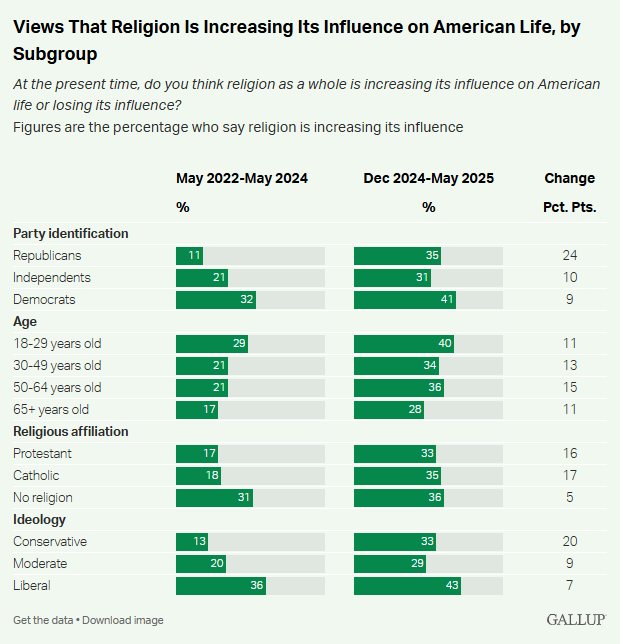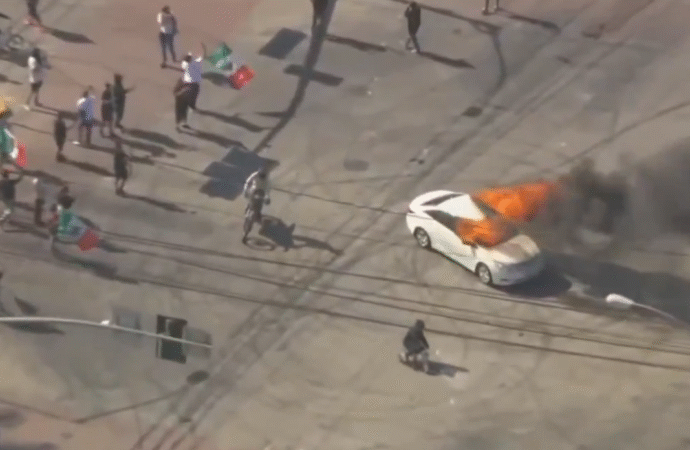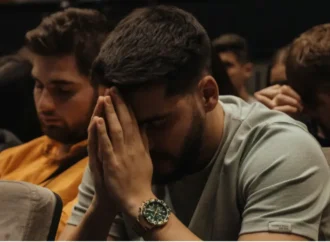Summer has barely started and already it’s shaping up to be déjà vu of 2020’s Summer of Love. In case we’ve forgotten, the chaos spreading from the Los Angeles riots to other cities around the nation shows once again that we live in a divided culture, one that pits respect for law and order against disarray and confusion.
Rioters in Los Angeles set a car on fire in the middle of the street: pic.twitter.com/AAFk5rXDif
— Andy Ngo (@MrAndyNgo) June 8, 2025
How did we arrive at such disunity?
“Politics,” some would answer promptly, referring to the vitriolic nature this realm has taken in recent years.
“Social media,” others would say, putting the blame on everyone’s favorite whipping boy – all while scrolling through reels on a smartphone.
“Illegal immigrants,” a third group might answer, pointing to the stated reason for the current riots.
But aren’t all these symptoms of our cultural disunity rather than its true source? What then is the true source of our cultural disarray?
A man far wiser than I had one simple theory: Christianity’s decline.
“If Christianity goes, the whole of our culture goes,” famed author T. S. Eliot wrote in “Christianity and Culture.”
Why does he make such a broad statement? The reason is because so many of our cultural elements were birthed in the cradle of Christianity.
“To our Christian heritage we owe many things besides religious faith,” Eliot writes. “Through it we trace the evolution of our arts…”
Doubt his words? Take yourself to an art museum. There you’ll likely find that many great works through the centuries depicted biblical or religious scenes. And even the apparently less religious works are full of religious symbolism and hints that are lost to our modern, uneducated eyes. Likewise, music – everything from Bach Cantatas to the Spirituals of 19th century America to Elvis Presley songs – is full of Christian references. Even our dialect contains multiple phrases traceable to Judeo-Christian concepts, such as “bite the dust,” “the writing is on the wall,” and “a drop in the bucket.”
“[T]hrough it we have our conception of Roman Law which has done so much to shape the Western World…”
Those getting arrested for rioting on the streets of Los Angeles and elsewhere will likely get a taste of this as they make their way through the court system. That same Roman Law, however, has biblical elements in it as well, such as the separation of powers present in our nation’s government.
“[T]hrough it we have our conceptions of private and public morality…”
Despite the decline in public morality in recent years, there are still some behaviors that most Americans still believe are morally unacceptable, such as marital infidelity, cloning humans, and suicide. The moral background for each of these can be traced back to Christianity’s respect for human life and marriage.
“The Western World has its unity in this heritage, in Christianity and in the ancient civilisations of Greece, Rome and Israel, from which, owing to two thousand years of Christianity, we trace our descent,” Eliot continues.
But what happens when this unity disappears? Although we still have vestiges of Christianity in our culture, the very riots themselves indicate that the understanding of Christianity and the following of it – at least for large portions of our population – is practically nil. How long will our society continue to exist if many don’t understand the very thing which formed our nation’s foundations? Can we get that cultural unity back through other means?
Eliot again gives us the answer:
What I wish to say is, that this unity in the common elements of culture, throughout many centuries, is the true bond between us. No political and economic organization, however much goodwill it commands, can supply what this culture unity gives. If we dissipate or throw away our common patrimony of culture, then all the organization and planning of the most ingenious minds will not help us, or bring us closer together.
That news can be depressing if one just looks at major events like the recent riots. But other sources suggest that all may not be lost. In fact, a recent Gallup poll shows that Americans of all ages and political leanings sense that religion’s influence is rising once again (see chart below). In only a year, the number of adults who “believe religion is increasing its influence in American life” rose from 20% to 35%. Add that to the fact that a recent Barna poll showed increasing numbers of young men turning to Christianity and it seems like the shift in the wind isn’t just imagination.

For years, many of us have been content to watch Christianity’s presence erode in influence, even advocating for a so-called neutral secular state. But if we want to see cultural unity return, do we need to abandon such an attitude? Do we instead, need to advocate for a society that embraces its core Christian elements and advance them even further in our arts, laws, and moral practices?
—
The republication of this article is made possible by The Fred & Rheta Skelton Center for Cultural Renewal.
Image Credit: Twitter screenshot
10 comments















10 Comments
Rowyn Milana
June 14, 2025, 2:57 pmLast night, I only worked for 3 hours and made $12,000 — I still can't believe it! I always thought this stuff was fake, but richjob2.com proved me wrong!
REPLYTheresaANoyola@Rowyn Milana
June 18, 2025, 9:13 amJOIN US Making cash is very easy an simple now days. 2025 is the year of making money online . I am here to tell you guys that its so easy to make more than $15k every month by working online. I have joined this job 3 months ago and on my first day of working without having any experience of online jobs I made $524. This is just amazing. Join this now by Follow instructions here………….. https://Www.JoinSalary.Com
REPLYMilana Chelsea
June 14, 2025, 2:58 pmLast night, I only worked for 3 hours and made $12,000 — I still can't believe it! I always thought this stuff was fake, but richjob2.com proved me wrong!
REPLYBrittany Madilynn
June 14, 2025, 3:01 pmLast night, I only worked for 3 hours and made $12,000 — I still can't believe it! I always thought this stuff was fake, but richjob2.com proved me wrong!
REPLYCarrie Alfred
June 22, 2025, 8:34 amMy husband left me for another woman a few months ago and ever since then my life has been filled with pain and agony because my husband was my first love whom I have spent my entire life with. A friend and also a colleague from work told me he saw some testimonies of a spiritualist called Doctor Muna, he can bring back lover within some few days, Ridiculously, I laughed it out and said I am not interested but for the sake of friendship, she consulted this God sent man on my behalf and to my greatest surprise after 12 hours my husband called me for the very first time for over 7 months saying "I miss you babe and I'm so sorry for everything I made me went through" I couldn't say a word but cried over the phone and hanged up. We are back together and living Happily together again. To be honest, I still can’t believe it, because it’s highly unbelievable. Thank you DOCTOR MUNA for bringing back my love and also to my SELFLESS FRIEND. Laura, who interceded on my behalf. For anyone who might need help of this wonderful spiritualist here is the email address: [email protected], Also add him on WhatsApp: +2347035449257
REPLYBrad Smitchell
June 24, 2025, 12:43 amCybersecurity experts may ethically monitor social media and mobile devices in limited circumstances to protect individuals from threats, exploitation, or to aid criminal investigations, and to safeguard organizations by preventing data loss, ensuring regulatory compliance, responding to incidents, or combating malware. Monitoring can also enhance public safety through threat intelligence or fighting serious cybercrime. However, such actions are only ethical with strict safeguards, including explicit consent, transparency, proportionality in data collection, data minimization, secure storage, legal compliance, and robust oversight. Without these, monitoring risks becoming unethical and may infringe on privacy or legal boundaries.
REPLYGuard Your Digital World With Innovative Tech!
Do you require social media access, a phone hack, email breach or website security fix?
OR
Do you simply wish to recover lost crypto funds, detect/track a location or carry out data alterations?
Our Elite cybersecurity services cover everything from result upgrades to clearing debts and fixing credit. For Unparalleled security and reliable results, choose the best in the business.
For further assistance, contact [email protected] or +1 862-660-2702 or Telegram: cyberhelpdesk00